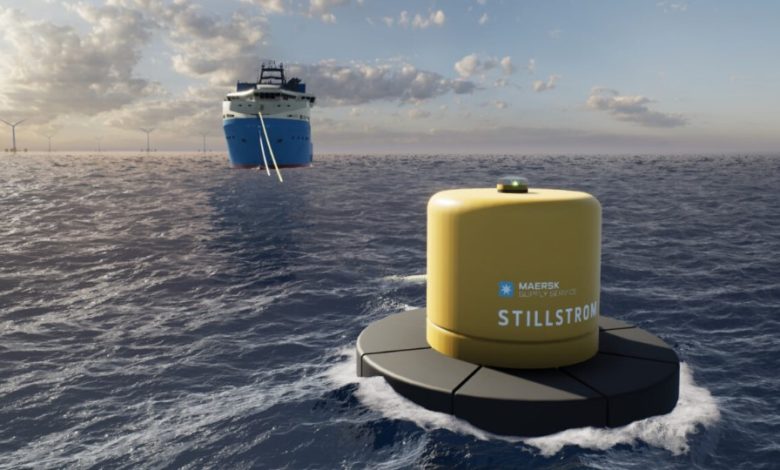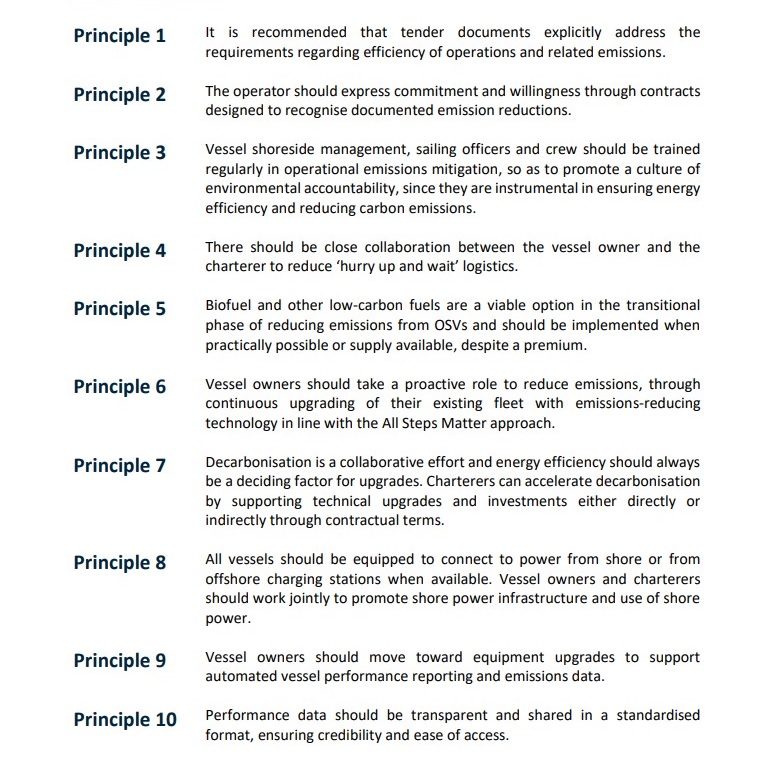OSV sector shown path to slash emissions this decade

Offshore support vessel owners and operators have been shown a way to decarbonise current working practices and facilitate the transition to a greener, carbon-neutral sector.
A white paper by the Forum for Decarbonising the OSV Industry, established in 2021 through a collaborative effort between Chevron, Shell, TotalEnergies, Equinor, ABS and Maersk Supply Service, has defined ten overarching principles to support the sector’s decarbonisation journey.
A number of elements of the transition to zero-carbon shipping, such as the development of green technologies for a new generation of vessels, are inevitably long-term endeavors. According to the paper, certain short-term modifications, however, can be taken to aid in the acceleration of this shift during the next decade, until such technology solutions have evolved.
The ten principles (pictured below) covered three areas: sourcing criteria, vessel optimisation and reporting.
Sourcing criteria are needed from the charterers to support and drive the OSV industry to be proactive on the decarbonisation journey and create a clear alignment of expectations.
The way charterers define their requirements moving forward will drive GHG reductions, the paper noted. “Through their buying power, charterers directly affect the acceleration of the decarbonisation journey of the OSV industry.”
Vessel optimisation refered to the tools and methods used towards decarbonisation and focused on four areas: behaviour, fuel, technical upgrades, and shore power and offshore charging solutions.
Looking at reporting, the paper highlighted two areas where principles should be agreed upon – data standardisation and transparency when reporting data.
“Reporting lays the groundwork for any decarbonisation plan. It is with transparent and standardised data sets that we can track our progress towards ambitious, strong, yet feasible targets.”
The forum participants excluded newbuilds from their examination but noted that design for the next class of low-carbon/fuelefficient offshore support vessels will need to be explored in another technical paper.
The topic of carbon credits in the OSV sector has also been excluded as it “needs time to mature”. “Although the strategy will always focus on reducing actual emissions, the question remains as to how carbon credits could play a role in further stimulating decarbonisation within the OSV industry,” the paper noted.

